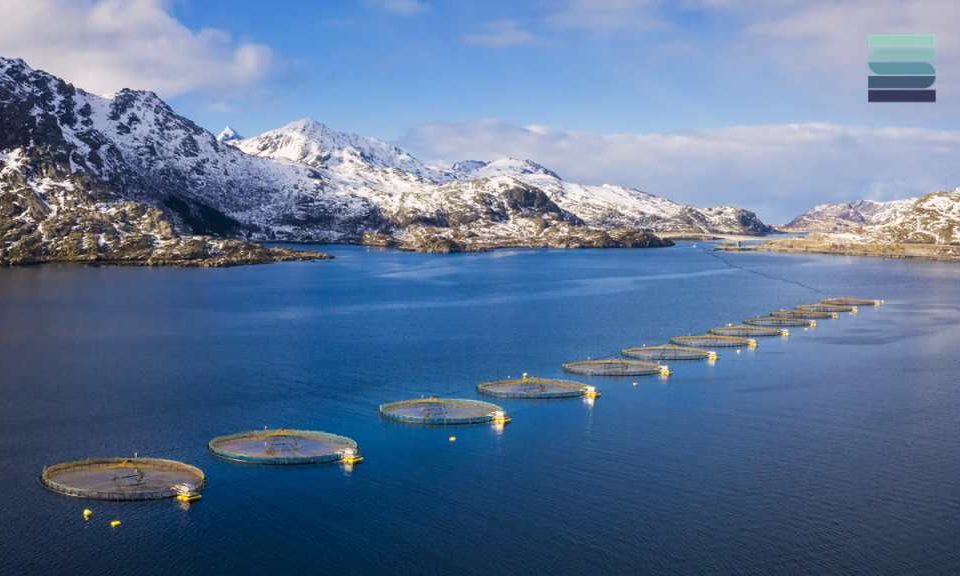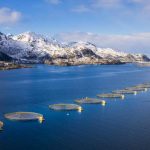Ocean analytics startup Scoot Science unveils a new tool to unlock a new path for impact investors and help ocean-based salmon farms operate more sustainably

The global market for Aquaculture is estimated at $180 billion and is expected to reach $245.2 billion by 2027. However, fish farms around the world face major risks from environmental including climate change, antibiotic overuse, and ocean pollution. To address these problems, one startup is on a mission to help fish farmers identify environmental threats they are facing.
Enter Scoot Science, a Silicon Valley-based ocean analytics and forecasting startup that uses AI to deliver accurate underwater weather and numerical ocean data for use by fish farmers. Scoot Science consists of a group of oceanographers and data scientists who are creating the first data transparency tools to unlock a new path for impact investors and help ocean-based salmon farms operate more sustainably.
This month, Scoot Science introduces a new understanding of how climate change is impacting ocean-based salmon farms globally.
Founded in 2017, Scoot Science is the forerunner of ocean analytics and forecasting. The team of oceanographers and data scientists is creating the first transparent, comprehensive, data-driven tools measuring the impact and risk of ocean conditions on salmon farms globally. The global high-resolution ocean modeling provided by Scoot Science opens up new pathways for impact investors to bring capital to sustainable ocean operations.
With the release of their whitepaper in mid-January entitled “Green Sharpe: Making Oceans Investable with Integrated Risk & Impact Modeling,” Scoot Science unlocks the mystery and the data behind real-time threats facing salmon farms around the world. According to the findings, the ocean absorbs an astonishing 90% of excess planetary warming and is HQ for salmon aquaculture, an industry that accounts for roughly 66% of all salmon sold globally
The company also introduces SeaVest, the only tool offering daily suitability scores for the environmental conditions at every ocean-based salmon site worldwide, and translates those conditions into financial outcomes. Scoot Science is introducing SeaState and SeaVest to do just that.
The startup has developed the first and only tool offering daily suitability scores for the environmental conditions at every ocean-based salmon site worldwide. Why salmon aquaculture? It accounts for nearly 66% of all salmon sold globally—one of the most climate-friendly protein sources. And, it offers risk-adjusted returns in the top quintile of all U.S. or European stocks.
Their findings create unprecedented opportunities for aquaculture companies to operate more sustainably and open a new space for impact investors seeking ways to activate within the blue economy while meaningfully advancing the SDGs. In the coming months, discussions will be held with industry experts on the science behind the changing ocean and the impact of investment opportunities available.
The full suite of Scoot Science capabilities is backed by globally sourced data and years of exhaustive research by a team of PhD-level oceanographers and data scientists. Going even further, Scoot Science offers SeaState, a customized and simplified dashboard designed to give farmers a window into what’s happening below the surface of the water historically, in the present moment, and in the future. Some of the world’s leading salmon producers in Canada and Norway have already signed up for access.
In a statement, Scoot Science CEO and Co-Founder Dr. Jonathan LaRiviere, said: “Aquaculture is intrinsically linked to ocean conditions and yet for decades, the finfish farming industry has been operating in a black box when it comes to ocean risks.”
LaRiviere continues: “We’ve developed the first tools to map the ocean conditions and extreme ocean events affecting the world’s salmon farms, and we’re doing it with statistical robustness that has never existed before. We’re here to help fish farmers and their potential investors understand how the business is affected by ocean volatility. And we’re offering a way to anticipate threats in the changing ocean.”
With the tools provided by Scoot Science, aquaculture companies and their investors have the first transparent, comprehensive, data-driven measurements of emissions, ocean conditions, and mortality.
“The vision is to use these data streams to unlock a pathway for impact investors to achieve superior risk-adjusted returns while supporting the industry’s journey to even more sustainable operations,” says LaRiviere. “This isn’t a moonshot sustainability initiative. It’s actionable now, at any ocean-based aquaculture site in the world.”
Webinars will be hosted in the coming months to discuss findings from the whitepaper and dive deeper into the opportunity Scoot Science offers. The report highlights:
• Norwegian salmon farmers have seen an extraordinary 24% compounded return on capital over 10 years. But private equity has shied away from aquaculture due to the day-to-day ocean risks exacerbated by ocean climate change.
• Salmon offers risk-adjusted returns in the top quintile of all U.S. or European stocks across recent decades and a historical Green Sharpe, Scoot’s measure of impact-and-risk-adjusted returns, that is 31 times larger than agriculture and livestock as a whole.
• Financial success in salmon farming is powerfully linked to impact success. Unlike so many other industries being evaluated for inclusion in ESG/impact portfolios, there simply is no bedrock tradeoff between profit and carbon footprint.
The webinar will also include an introduction of SeaVest and SeaState:
• SeaState and SeaVest are the first tools to unlock the mystery behind the frequency and severity of historic ocean risks.
• SeaVest is the first transparency tool to offer a comprehensive view of the dynamics driving cashflows of over 3,500 salmon farms globally.
• SeaVest is the only tool offering daily suitability scores for the environmental conditions at every ocean-based salmon site worldwide.
• SeaVest provides the first consistent site-level emissions intensity reporting tool for impact investors.
• SeaVest is the first rigorous, asset-level quantification of ocean risk alongside biological and market dynamics for the entire ocean-based salmon farming industry.
• SeaState is the first digital dashboard to unify ocean data with ocean observing at individual farms and translate the complete dataset into models that offer forecasts of dangerous ocean conditions.
• SeaState is the only platform offering transparency for impact investors about environmental conditions, fish health, and production.
You can sign up here for the webinar and download the whitepaper.

